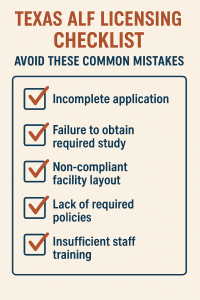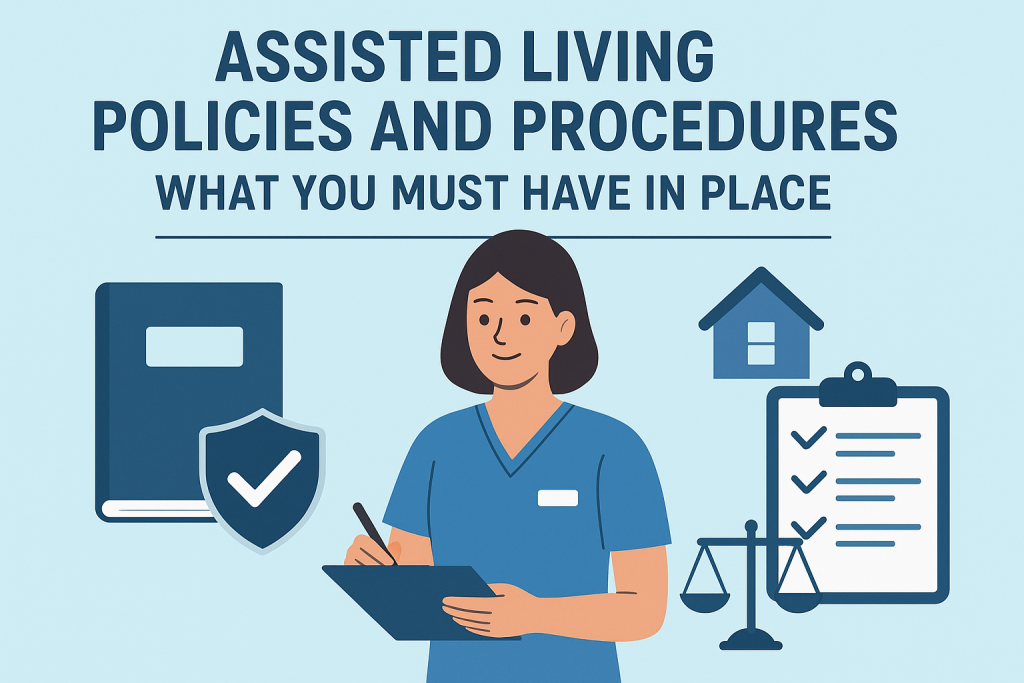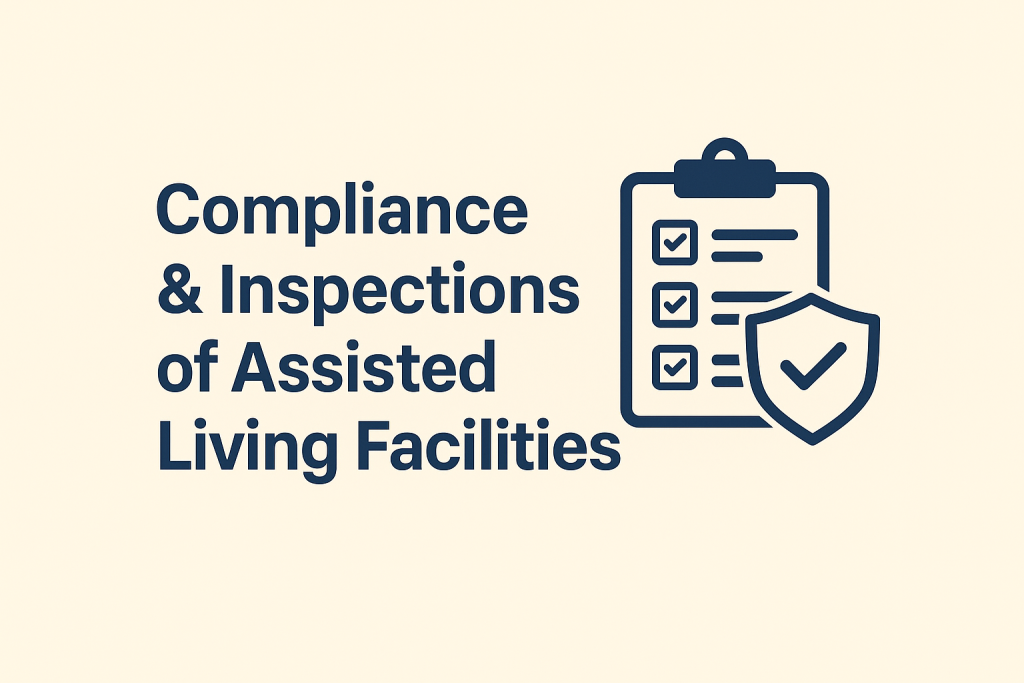
Texas ALF Licensing Checklist: Avoid These Common Mistakes
Opening or running an Assisted Living Facility (ALF) in Texas requires careful attention to compliance. The Texas Health and Human Services Commission (HHSC) has specific rules that every provider must follow to maintain licensing. Unfortunately, many facilities overlook small but important details that can lead to citations, fines, or even loss of license.
Here’s a practical checklist to help you avoid the most common mistakes during the Texas ALF licensing process:
1. Missing or Incomplete Documentation
One of the biggest reasons facilities fail inspections is due to missing paperwork. Make sure you have:
- Current license displayed in a visible location.
- Updated administrator and staff training records.
- Resident service plans and admission paperwork fully completed.
Pro Tip: Keep all records organized in a binder or digital system for quick access during inspections.
2. Inadequate Policies and Procedures
Texas regulations require written policies for resident care, medication management, and emergency preparedness. Facilities often fail to keep these updated.
Avoid the mistake: Review policies at least once a year and update them to reflect any regulatory changes.
3. Staffing and Training Gaps
Texas ALFs must meet minimum staffing levels based on resident needs. Inspectors often find:
- Staff without current CPR/first aid certification.
- Insufficient orientation or continuing education records.
- Shifts without enough caregivers to meet resident needs.
Action Step: Create a training calendar and staffing plan that ensures coverage and compliance.
4. Medication Management Errors
Medication errors are one of the most cited issues. Mistakes include:
- Improper storage (unlocked cabinets, expired meds).
- Incomplete medication administration records (MARs).
- Staff assisting residents without required training.
Avoid the mistake: Conduct regular audits of your medication system and retrain staff as needed.
5. Failure to Post Required Notices
Texas requires ALFs to post complaint hotlines, residents’ rights, and emergency numbers. Facilities sometimes overlook this, leading to unnecessary citations.
Quick Fix: Designate a compliance board or wall in the facility where all required postings are displayed.
6. Poor Maintenance and Safety Oversights
Small issues like broken smoke detectors, poor lighting, or blocked exits can result in serious violations.
Tip: Do monthly safety walk-throughs to catch issues before inspectors do.
7. Ignoring Resident Rights Requirements
Residents must have access to complaint procedures, privacy, and dignity in care. Facilities sometimes fall short by not posting rights or not training staff adequately.
Stay Compliant: Include resident rights in orientation and reinforce them in ongoing training.
Running a Texas Assisted Living Facility means balancing care, operations, and compliance. By staying proactive and using this checklist, you can avoid common licensing mistakes that cost facilities time, money, and reputation.
Remember: Compliance isn’t just about avoiding fines—it’s about creating a safe, supportive home for your residents.


